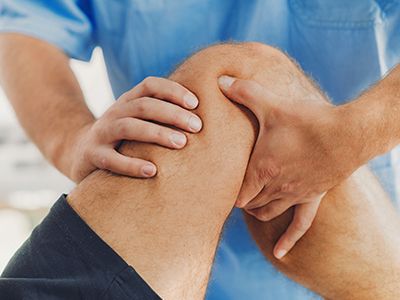
Neuropathy, often referred to as peripheral neuropathy, is typically caused by damage to the peripheral nerves outside of the spine and brain. The pain from this nerve damage can be so intense that you may be unable to sleep. This condition is often underdiagnosed because individuals are unaware of the early signs of nerve damage. The symptoms of nerve damage usually vary, so to know that you are experiencing it can be challenging. However, it is essential to start treatment early before the condition progresses.
What is Neuropathy?
Neuropathy is damage to the peripheral nerves—nerves that take messages from the spine and the brain to the rest of the body. These peripheral nerves form an intricate network across the body, from the skin, muscles, and internal organs.
If a specific nerve is damaged, doctors can track it to one area quite effectively. If a nerve sustains much damage, it cannot communicate with the spine or brain and causes impaired muscle movement and abnormal sensations in the arms and legs.
What Causes Neuropathy?
About 30-40% of neuropathic cases are idiopathic, meaning the cause is usually unknown. Another 30% of these cases are a result of diabetes. Most doctors will regularly check their diabetic patients for signs of nerve damage at their appointments.
Some other causes of neuropathy may be:
Autoimmune diseases
Kidney disease
Deficiency in nutrition
Bacterial and viral infection
Bone marrow disorders
Physical trauma
Rheumatoid arthritis
Liver disease
Vitamin deficiency
Tumors
Consumption of alcohol predisposes you to develop neuropathy. You may also risk developing neuropathy from certain infections, exposure to toxins, or other inherited causes.
What Are the Types of Nerves in the Body?
All peripheral nerves have specific functions, and the symptoms will depend on the affected nerve. There are three classifications of nerves:
Sensory Nerves
Sensory nerves receive sensations like touch, vibration, pain, or temperature from the skin.
Motor Nerves
Motor nerves are responsible for controlling muscles.
Autonomic Nerves
Autonomic nerves control bodily functions like perspiration, blood pressure, bladder function, heart rate, and digestion.
What Are the Symptoms of Neuropathy?
Slow development of numbness, tingling, or prickling sensation in your hands or feet that may also spread to your arms and legs.
You become extremely sensitive to touch.
Falling and a lack of coordination.
Burning, throbbing, jabbing, or sharp pain.
Pain in your feet if you put weight on them.
The feeling of wearing socks or gloves when you are not.
Weakness in your muscles.
If motor nerves are affected, you may experience paralysis.
Intolerance to heat if autonomic nerves are affected.
Inability to sweat or excessive sweating.
Digestive, bladder, or bowel problems.
Fluctuating blood pressure, which may cause light-headedness or dizziness.
For more on the warning signs of neuropathy, visit South Bay Wellness Center & Chiropractic at our office in San Jose, California. Call (408) 642-6060 to schedule an appointment today.



